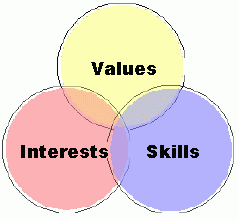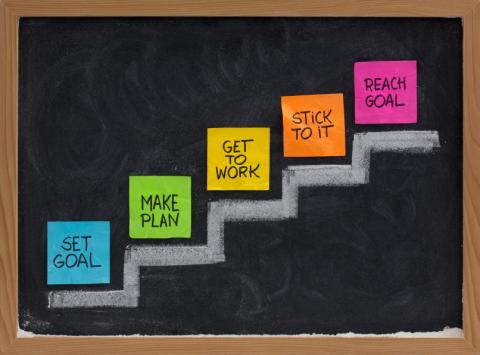Have you ever taken the Myers Briggs Type Indicator (MBTI)? If so, you know that this is an assessment with the aim of measuring your personality preferences along four different dichotomous dimensions. The MBTI helps people answer the following questions: Where do you focus your attention and/or get your energy?; How do you prefer to take in information?; How do you make decisions?; and finally, How do you organize the world around you?


Whether you are a postbac, graduate student, postdoc or clinical fellow, you probably have wondered how to blend your individual interests, values and skills into a satisfying career. Self-assessment is an integral part of an effective career planning process and involves asking yourself about your: Skills -How good am I at different lab techniques or giving talks? -How are my language, mentoring, training, writing and communication skills? Interests -What interests me?

Have you drafted a career plan? Do you know if you have the required skills for your dream job? Figuring out the next step in your career and how to prepare for it can be stressful. But developing a plan, early on in your career, will help guide you through this process of identifying and achieving your career goals. This year, the OITE will be dedicating its blog to help you develop a Career Success Plan, focusing on a variety of core competencies that are critical for your career development, the first being career exploration and planning.

Career assessments are valuable tools to help you during your career exploration and planning. They can be a great starting point and the results can help you think more deeply about your own personal preferences and career interests. Two formal assessments are the Myers-Briggs Type Indicator (MBTI) and the Strong Interest Inventory. To take these assessments, questions are answered online and then the results are shared and discussed during an appointment with a career counselor.

Recently, the staff here in the OITE had a dose of our own medicine. Our boss asked us to complete a document about our professional goals and needs. This document reminded many of us about how we tell trainees to “fill out an IDP”. For a group of professionals in the career development field, we were all surprised how hard this document was to complete. Now, we have a whole new appreciation of what our trainees struggle with when we ask them to do the same thing.

Getting the right degree for the career you want is not as easy as you might think. Many believe a PhD is always better than a master’s degree. However, depending on what you want to do, having a master’s degree can put you in a better position to get a job. Just like any decision, it is important to consider all the factors before making a decision on which degree is best for you. There are distinct differences between most master’s degree programs and PhD programs. Degree Purpose: In general, a PhD program is not designed to get you a job.
Post written by Sharon Milgram, Director of The Office of Intramural Training & Education.
Last week at the NIH, Daniel Goleman delivered a talk about Emotional Intelligence and how it influences leadership. The premise of Emotional Intelligence is that understanding your emotions, the emotions of others, and how the two interact allows us to be more successful and happier.
Emotional Intelligence suggests that to be successful the following traits are important:
You have a new job! (or hope to soon). Here are some tips to make the transition to your new position successful and as easy as possible.
First, remember that transitions are always tough. While you are likely very excited about a new position, the transition can be overwhelming, especially if you are moving to a new location. You are closing out a chapter in your life that has likely lasted between two and five years (or more). You are saying goodbye to friends and colleagues and disrupting an established routine—so some anxiety is totally normal.
Its interview season! This time of year we seem to see an increase in the number of institutions hiring people. Before they hire someone, they are going to interview at least a few people for each position. This is why we set September on our Calendar for Career Success to be the month that you

